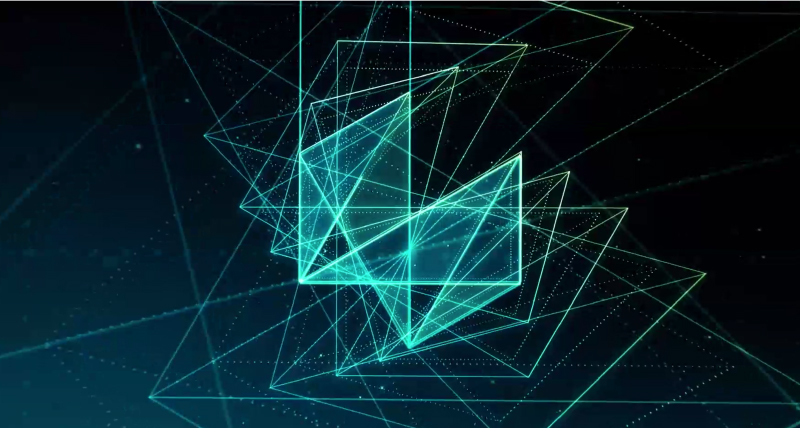In this episode, we sat down with Rachel Yee, Pre-sales Director, APAC, and Marion McCann, Vice President of Regional Growth, both from Hexagon’s Asset Lifecycle Intelligence division, who share insights on their career journeys, their perspectives on leadership, the importance of continuous learning, and the value of collaborative teamwork in achieving success.
BK: Hello and welcome to today’s podcast, ‘Hexagon leadership series,’ from Hexagon. Thank you so much for joining us. I’m your host, Brian. And today we’ll be discussing some of the lessons learnt from Hexagon Asset Lifecycle Intelligence division’s leaders, Rachel Yee, pre-sales director at APAC, and Marion McCann, vice president of regional growth.
Rachel and Marion, welcome to the show. Thanks for joining me. Appreciate it.
RY: Thank you.
MM: Thank you. It’s good to be here.
BK: Yeah. It’s good to see you both. And first of all, we want to get to know a little bit about you. So, tell us about yourself. What do you do? And what are you nerding out on? What are you having fun with right now?
RY: Well, like, it’s just introduce us? I’m the director of pre-sales leading 40 pre-sales consultants in APAC, which is I have never imagined that my team can grow so big. And then, I started to lead the team about two years ago. What’s made me feel really fun of is how to see the team being get together. We not only work. A lot of the time, we are talking about what’s our visions, the role that we play, and the impact that we can bring to the company. At the same time, how we learn across multiple solutions. And not only growing the company but growing ourselves as a person as well. So that’s really made me proud. And then like we say, right, you enjoy what you do and which meaning that you’re having fun every day.
BK: Oh, good. I like that. That makes it great. Thanks, Rachel.
Marion?
MM: Yeah. So, I’m responsible for the strategic vision and execution of our regional growth plans. And so, looking at ways that we can position our portfolio into new verticals for that strategic growth. And I would say that really the—or the most fun that I’m having is really just understanding all these new industries and verticals. I came in through, as most people from Hexagon, came in through an acquisition. And so just taking the portfolio that I understood at my previous company of two products and now to this expansive product portfolio and the solutions that we provide and into the so many different vertical markets. It’s just really geeking out on all these different verticals and how we can provide our solutions of sustainability and autonomy into these different verticals. It’s really mind-blowing about the capabilities. And so, it’s looking at how we can do that and make a difference in our customer’s lives.
BK: That’s cool. I love it.
RY: Exactly. It’s just the role that we play here is not only providing the impact to the company, but also providing the impact to the customer, how we enable them to adopt our technology to materialise division at the same times. By seeing that the company has been growing in different technology, which is enable different sectors. A lot of the time, we are also talking about diversification nowadays. So, I’m glad that as a pre-sales, our team have opportunity to understand the customer challenge and really able to match our technology to help them achieve their dreams.
BK: Yeah. Yeah, that’s great.
So, what drew you to a career in technology in the first place?
RY: Well, I actually graduated from computer science, and I thought that that’s something that straight away go into a technology field. But my first job is actually in a construction company and doing something totally different from what I study. I began with involving in a project as a project administrator. And then that’s like learning the entire engineering phase from blank. So, I have to do everything which is relevant to building a platform and shift up of the yard.
So when I started back into technologies is when I has been assigned to look after a yard modernisation programme, where I see how technology could be applied to help a fabrication yard to be more productive, to be safer, and then to able to do more project at the shorter time, and then still within the budget.
So talking about the modernisation, I believe that technology had played a big role. And that time when I worked in there, we had chosen Hexagon as the trusted partner to really work together. And when I started with that programme, thinking about actually what I have learnt here can help more people. So, I wanted to talk to other customer, other organisation that actually wanted to achieve the same result. I think what I have learnt can help them. That’s why I have made a decision that, okay, I probably wanted to move into another path working to with a technology company that actually provides solution to a broader area, to more organisation that can leverage on what I have built in my previous company.
BK: Very nice.
Marion, how about you?
MM: Yeah. So, for me it was a little more happenstance. So back being always good at math in high school, I just said engineering was a field for me. And then I emulated my dad. He was a chemical engineer, so I assumed that that had to be for me. And so, spent eight years in the chemical industry, and it was just an opportunity presented itself to work for a vendor. And I thought, yeah, sure, let’s try it. And I think I’ve always been a little bit open to any possibilities; let’s try it. And I ended up at a technology company.
And I really understood, having been in the chemical industry, what we were trying to accomplish, and then the value that a technology brings to that company. And realised how wrong I was doing things at the chemical. I’m like, and how much better we could have been doing things and understanding that technology. So that really was an eye-opener of like, oh, wow, I should have been more expansive. I should have reached out and done more search. Of course, I don’t think Google was as prolific as it is today.
BK: Yeah.
MM: Or ChatGPT.
BK: Yeah.
MM: I could just ask the question now, right? But that was really opening the door to my interest in technology.
And then, I think the other aspect is really just being open to possibilities, right? I don’t think we can ever just say that we’re 18 and say, “This is what I want to be when I grow up.” And there’s so many different opportunities. I just look at it as let’s try this new thing; let’s see how it goes. And so, with that, I just embodied technology. And with Hexagon, it’s just, it’s been an amazing journey just to see the expansiveness of our technologies.
BK: Nice. Now, Marion, you mentioned you were acquired—
MM: I was.
BK: —in one of the acquisitions with Hexagon. So how did that all happen, and when did that all happen, and how’s it been so far?
MM: So, we were acquired I think at the end of 2020. And it’s been really challenging to just the… We came from a company, or I was at a company that was 200 people. And now to come into just a business unit, really of 3,000 people, 4,000 with EAM. And just the number of products. It’s not even the products, right? It’s understanding the product, the solutions, the verticals, but also the work processes. We have so many different ways that we—the way we work.
BK: Yeah.
MM: So that’s just been—I think other people that have been acquired feel that same thing. It’s just, we’re a big company. And I think I don’t think we’re even as big as some of these other—
BK: True. Yeah. Yeah, very true.
MM: —monolith, like Nvidia or BSF or some of our customers. But I’m feeling that definitely, we’re a big company. And it’s just it’s been great to understand it and learn how every everyone works together.
BK: That’s great.
Rachel, how about you?
RY: Well, from a construction company into a technology company is a big difference.
BK: Yeah.
RY: So, the way how the things being done on the site is a little bit more straightforward sometimes. It’s all about schedule driven. It’s all about putting safety at the first place, right?
So, I joined Hexagon in year 2014 and started as a business development consultant. So, when you’re consulting, the way that you approach the customer is very different, how I speak to my field teams in the construction sites, right? So that’s the first time I kind of like present in front of the customer trying to present and what’s the business value.
Last time when I was working in construction, I don’t really do too much of value selling. So that is the biggest difference of the turning on my career path from working in a construction company into a technology company. But at the same time, I gain a lot. A lot of the things, what I feel like the communications to the customer must be in a way that they also feel that we are having the empathy on them. So, this is something where sometimes we take it as granted. So, when I become a consultant, I can feel this. And until now, I still using the same principles when I speak to my team members that yes, we always have the passion, but we also need to have empathy in terms of talking to the customer, understand their problem, and see things from their perspective.
BK: Definitely.
So, I’m curious what a day in your life looks like from a work perspective.
RY: Okay. Yeah. So suddenly, grow a team into that big. I just actually, like I say, took over the position from my previous boss two years ago. So, every day, the first thing that I’ll really thinking about is, how’s my teams doing today?
BK: Oh, good. Nice. That’s good.
RY: Yes, yes. And then, whether they still have the bandwidth to not only look after the work, but also the family. I believe work-life balance is important. And then, of course, make sure that all the team members are still aligned towards the goals that we wanted to meet.
BK: Yeah.
RY: Everyone is still keep the principle in their heart. And of course, we are always constantly need to collaborate to each other, make sure that we are heading towards the same directions.
So, I practising one-on-one. And not only that, I also practising skip level one-on-one. And that’s something that I consider is really important in my day-to-day operations and daily work to make sure that yes, I’ve been communicating with my team, and everyone is comfortable on contributing to the company.
BK: Good. Excellent.
What’s the favourite part of your job, by the way?
RY: My favourite part of the job, of course, I still love to do consulting, a lot.
BK: Oh, good.
RY: Yeah. So now instead of consulting externally compared to what I used to be an industry consultant before, I’m consulting internally more with my team members.
BK: Interesting. Oh, good. Yeah.
RY: Yes, yes. So, I think consulting is still a very big part of what I like to do.
BK: Yeah. Cool.
Marion, how about you? How did you—well, I guess let’s start with the, what’s a day in your work life look like?
MM: Yeah, so similar to what Rachel said, which is looking at how people are performing. And one of the things we did in the Americas was create a regional business plan so that we’re all rowing in the same direction, right? We’ve got a ship, and so, everyone’s aligned and understands the plan, right?
BK: Yes, yeah.
MM: And so that’s one of the things that I’ve been mostly involved in is understanding, pulling everyone together and understanding this is the strategy for the Americas. And so now, we’re into the three-to-five-year plan. And then now it’s making sure that we execute.
And so, one of the things that I really challenge myself is that don’t always get bogged down in the tactical day-to-day things is you want to make time for the strategy, right? What are you doing? Why are you doing it? And so, one of the fun things obviously is the people that I work with is uncovering why we’re doing the things we’re doing and aligning that. Because even though you put a business plan together, it takes many, many iterations to get the adoption and the understanding. We still work in different silos. We have people that, “Hey, this is the way I’ve done it. This is the way we’re going to continue to do it.” And we want to change that. And we’re growing in different acquisitions and different verticals. So, we’re always aligning, “Hey, how does that align with our growth plans?” And so, just talking with those individuals, bringing that all together, and making sure, hey, we’ve got that vision. So, talking to those people.
And then just back to what I originally said, which is I have to take that time to think strategy, right?
BK: Yeah, yeah.
MM: What’s the strategy behind? Otherwise, you can get bogged on in the day-to-day meetings, Teams meetings—
BK: Oh, yeah.
MM: —and daily to-dos or checking on—if you spend all day checking your email, you really don’t get anything done. So that’s the fun part for me, is just uncovering that. And then talking with people and make sure we’re all rowing in the same direction.
BK: That’s good. That’s good.
So, what about a secret to success? And what sort of advice would you pass on to young professionals, people getting started in this?
RY: Well…
MM: Don’t do it. Don’t do it. I mean, I’m sorry. Get out now. This’ll totally be edited, right? Left track.
BK: No, that was hilarious. I loved it. We got to keep that in there.
RY: Let’s just do everything.
Well, I think it is very much about how we’ve been brought out as well, I think. You know, different culture, when we grow in different culture, different country and different environment, so it determines how you look at things. But for me is really keep your eye opens and also mind opens, open to all the opportunity that present in front of you. And don’t look at the opportunity as one thing. Look at it from multiple angles. So, some of them may think of, “Well, today I’m just doing a very low-level job.” Maybe I just, when I work in a construction company, for example, a documents controller. So, you might see that work is a very administrative work. But if you look at it from another angle, you’re the only one who have opportunity to read all the procedures from the projects. And that’s where how you learn how the entire project’s going to be executed. So, from that, you learn something that not ordinary documents control probably will say, “Oh, I just manage documents.” But if you take opportunity to read it, to learn it, then it will be something that you actually gain across the experience, even though you’re doing administrative work.
So always look at things as not only one side of it, multiple side of it. That’s how I see things.
BK: Nice.
MM: Yeah, I see it like a growth mindset, right? —
BK: Yeah.
MM: —is always learning, right? There’s so much knowledge to be had and understanding your role and how it creates value in an organisation I think is very important.
And the only thing that I would add, because I very much agree with Rachel on that, which is just always learning and taking those opportunities that present itself. And you can make something out of whatever role that you have. And then the only thing that I would add to her was when I go to my boss with a problem, I always come with a solution.
BK: Good.
MM: So, I’m—
BK: Yeah, yeah.
MM: Yeah. And you know—
BK: That’s the way it should be.
MM: And it should because it gets you to think about how you would solve your own problems. And I think that, your leaders start to think like, “Oh, they’ve always come in with not just the problem, but how they’re going to solve it.” And look, and it may not always be right—
BK: Sure.
MM: —you know. That was a bad idea. But I’m coming with some ideas—
BK: Yeah.
MM: —you know? And I think that challenges you to think about what the next level is.
BK: Mm-hmm. Well, it’s a leadership characteristic, and not to mention we don’t need more problems; we just need more solutions for whatever’s… Yeah, exactly. I love that. I think it’s exactly the way it should be. So, excellent.
RY: Right. And then play your part as one of the team members, because I think always, we make success together. One person, of course, that only that much you can do, right? You can claim as this is one person’s success. But if we combine the effort together and then we win as a team. So, when we are able to look at how can we achieve as a team by playing your part and maybe take a more proactive step to just make slightly more effort to be closer to the success, I guess, it will be obviously seen by the rest and take it as a role model.
BK: Mm-hmm. I love it, love it.
Rachel, Marion, thank you very much. Appreciate it. Thank you for joining me.
MM: Thank you.
RY: Thank you.
MM: It’s great to be here.
BK: Rachel Yee, Pre-sales Director, APAC; and Marion McCann, Vice President of Regional Growth, thank you so much for joining us.
For more information, please visit hexagon.com. Thank you, again, for listening, and have a wonderful day.
















